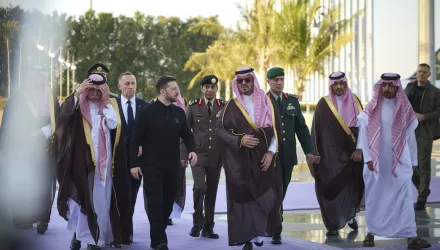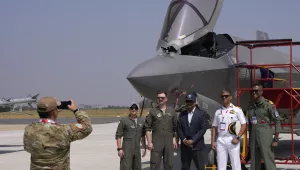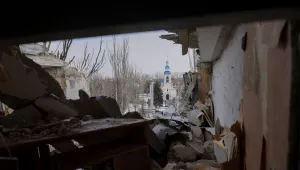It was not accidental that during this past week, as I and so many others remembered the life and work of the late Samir Kassir, who was assassinated ten years ago in Beirut, I also spent an hour discussing with Lech Walesa in Gdansk, Poland, some of the lessons and experiences of his historic workers’ movement Solidarity. Thirty-five years ago, Wales and Solidarity were instrumental in speeding up the collapse of the entire Soviet Union and its ugly empire of captive lands in central Asia and Eastern Europe.
Not an accident, I say, because these two men who lived in very different times and places captured in their values and actions the universal sentiments of tens of millions of their compatriots, most notably the struggle for human freedom, dignity and decency. I will write in a separate set of columns in coming weeks my reports and analyses of discussions with Walesa and a handful of other leading Polish intellectuals and activists. Their thoughts are worth pondering because their historic activism helped to transform Poland into one of the remarkable success stories of former Soviet-subjugated lands that have achieved democratic and economic success today — while they also continue to struggle against new threats and dangers, such as the hardships of the vulnerable in society who are trampled by the excesses of runaway capitalism and globalization.
The analogy with Samir Kassir is relevant because the battles these men fought and led remain alive today for hundreds of millions of people across the Arab world and other societies. Kassir focused on the Arab condition and its troubles, whether the Syrian subjugation of Lebanon that he experienced and resisted actively — at the cost of his life ultimately — or widespread dehumanization of citizens across the Arab world who grappled with the multiple stresses of their own domestic subjugation, the ravages of Zionism, or the complexities of their erratic relations with Western powers.
The three most important points that I retain from my conversation with Lech Walesa ring massively familiar in the current struggle for freedom, stability and legitimacy across the Arab world. They are that, the struggle for workers’ and citizens’ rights in Poland ultimately succeeded because, a) they organized patiently and steadily over many years, recognizing that victory would come cumulatively and in stages, rather than instantly, b) they used non-violent resistance, protest, strikes and sit-ins, because they could not match the Soviet arsenal of weapons and tanks they knew would be used to crush them (“we released the power of the human spirit, not missiles”), and, c) they worked for practical, limited gains that resonated with their popular base and allowed them to mobilize a following of some ten million members at their height.
My impression is that the life and thought of Samir Kassir mirror most of these same values and tactics. It is always worth recalling them on the anniversary of his assassination because the struggle he embodied continues today across the entire Arab world, without exception. Even in wealthy energy-producing states, where most material needs are met, many citizens are constrained by limits on their freedom of speech and collective political action outside the realm of what the government approves. In most of the poorer Arab world, several hundred million people suffer these same rights humiliations, along with serious material deficiencies in education, housing and health care quality, jobs and income, social safety nets, and abuse of power.
The wars, insurrections, growing sectarianism and occasional savagery that define many Arab regions today are all the consequences of acts of man, not acts of God or nature. They are neither inevitable nor insurmountable. They can all be fixed by better acts of man, better government policies, and, above all, more active participation by ordinary men and women in the business of governance and public policy.
A generation after Walesa’s successful mobilization of shipyard workers and then millions of other Polish men and women who insisted on practicing their human right to free expression and collective labor bargaining, Kassir’s writing and activism articulated these common human values and demands, in the much more convoluted context of a shattered Arab world that was triply colonized and subjugated by Zionism, western imperialism and Arab dictatorships and autocracies.
The straight historical trajectory of the human quest for freedom, justice and dignity has passed through the hearts and acts of many inspiring men and women, like Mahatma Gandhi, Martin Luther King, Nelson Mandela, Rosa Parks, Lech Walesa and, in his own world, Samir Kassir. Thousands of others marched to the same tune as these people, whether they brought down entire empires or simply galvanized their neighborhood or village to work together for a clean, safe, productive and pluralistic communal environment. Their spirit is indomitable, and it will triumph for sure — because it is not only their spirit, but rather a mirror of all humanity’s most cherished and powerful instinct to live in freedom, with dignity and tolerance above all. This is what you feel, whether you sit next to Samir Kassir’s statue in downtown Beirut, the monument to the Polish workers at Gdansk shipyard killed on Soviet orders in 1970, or a hundred other testaments to the human spirit like these around the world.
Khouri, Rami. “The spirit lives, in Gdansk and Beirut.” Agence Global, June 3, 2015





